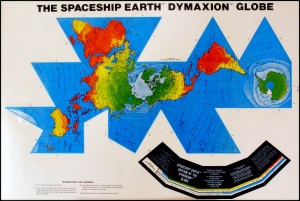
When this truly began, where to mark DAY ONE of this brave new epoch, is up for debate. Most historians and scientists might point to the Industrial Revolution. Beginning in the late 1700’s and ramping up to critical momentum by 1850, the Industrial Revolution marks a radical shift in the relationship between human civilization and the environment which has only accelerated. However, as far back as 2000 years ago (and earlier), early civilizations were already reshaping the planet. From the Roman Empire to the early Chinese dynasties, the first significant societies took part in ecologically transformative activities — large-scale agriculture, mining, logging, and so on, in ways that dramatically altered local conditions. Some scientists and historians, like Erle Ellis, have spent entire careers researching far-reaching and widespread effects of human development. It is no coincidence most of these practices grew out of a desire to control energy and resources. This intellectual thread will continue quite clearly through this studio’s research, but also traces the framework of human history.
When asked what geological event could be said to mark the Anthropocene, Dr. David Grinspoon pointed to a particular technology — the first tests of the Atomic Bomb:
…the symbolism is so potent — the moment we grasped that terrible promethean fire that, uncontrolled, could consume the world…
The same hunger for technology that drives modern life and is held up as a solution to climate change, has simultaneously produced works of awesome violence and drives the engine of ever-growing energy demand. In a contemporary culture that worships and fetishizes Technology, there is a strategic delusion in the public mind that divorces our beloved gadgets from this ever-increasing, climate crisis. (Of course even calling this a ‘crisis’ implies a grouping with our present collection of crises: ‘crisis’ in Syria, the economic ‘crisis’ in America, the ‘crisis’ of the Middle Class, etc… Perhaps we should change our vocabulary and call this condition what it really is — a global catastrophe? a both moral and intellectual failure? the next mass-extinction event?)
All that has truly changed in the last 2000 years of human history and works, is scale. Surging from the local and momentary, to the planetary and indelible — we have arrived at our present moment. And it is truly a MOMENT, in geological terms, which could be snuffed out with unfeeling swiftness. For the first time in the history of the species, our economic, religious, cultural, social, and political practices/beliefs have the capacity to change the ecology and geology of the planet. Political decisions that appear to be about energy policy and resource management, reach into the deep structure of the planet. Seemingly everyday social stances on disposable consumer products could preserve, or radically alter, natural systems. And the decisions we now make, as a community, as a nation, and as a species, will lay out the blueprint of our future history.